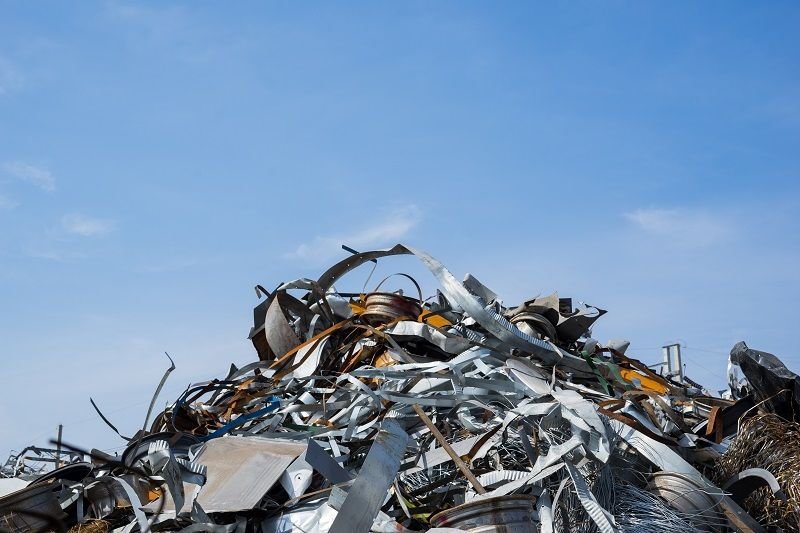In recent years there has been a lot of emphasis on the right recycling of scrap metals. By that, we mean disposing of the metals in such a manner that it gets recycled or discarded and doesn’t impact the environment. Meanwhile, we create raw material for producing metal-based goods.
What all does the scrap metal include?
Scrap metal recycling involves collecting and processing Metal from end-of-life products. It is already a robust industry and prepares metals in their raw forms for the production of new goods.
There are two categories of scrap metal recycling, ferrous Metal, and nonferrous Metal.
- Ferrous metal – contains some degree of iron and combinations of iron with carbon such as wrought iron, cast iron, carbon steel, alloy steel
- Non-ferrous Metal – contains no iron such as copper, lead, nickel, aluminium, tin.
These scarp metals are metal waste from:
- Manufacturing and consumption of building supplies
- Vehicles and vehicle parts
- Surplus materials.
There is a substantial monetary value in scrap metal, and the industry of scrap metal disposal is already worth billions. Both metals and non-metallic materials are collected for recycling. As any kind of metal can be recycled again and without losing its property, the industry of scrap metal Recycling holds great promise and economic value.
Recycling Facts of Metal
Steel and iron are the most recycled materials as they are easy to collect and recycle. Although there is a tremendous economic and environmental advantage in scrap metal Recycling, only 30 per cent of metal get collected and recycled in the world. Cans, automobiles, steel containers, and construction materials contribute to the maximum weight of recycled scrap. Still, the scrap industry has been more active in the last few decades.
Here are some interesting facts about the industry.
- 400 million tons of metal is recycled globally.
- Worldwide steel production uses 40 per cent of recycled steel.
- The United States uses recycled materials to make 42 per cent of crude steel
- Steel is the most recycled metal
- Did you know that aluminium cans take 200- 500 years to decompose, hence, recycling is a better option?
- Recycling aluminium uses 90% lesser energy
- Metals which are found in electronic products, palladium, silver, gold and platinum are recyclable
- 98% of a car battery is also recyclable
One should realize the significance of scrap metal Recycling and why to encourage the industry. The scrap metal Recycling industry involves the export and import of scrap commodities between countries. The industry has added many more jobs and thus supports the economy as it generates billions in revenue for the governments. It is encouraged as it lowers the carbon footprint and encourages environmental protection. If you throw away an aluminium can, it is like throwing away a can filled with gasoline.
New recycling technologies used for scrap metal Recycling
There are many innovative metal recycling technologies that can help identify different kinds of metals and separate them. Most scrappers make use of automated recycling machines which are equipped with sensors and magnets that help in the easy separation of scrap from the main product. This saves time and the recycling process can start easily. The ferrous metals can be pulled out from the mixed waste stream with the help of magnets as they contain iron. In bigger scrap yards, one can even find cranes with a huge electromagnet removing larger pieces of ferrous scrap.
The first material to be removed from the scarp is paper, and only plastics and metals are left behind. Eddy Current Separation is used to remove the metals with the help of electric currents, and the plastics are dropped out of the process. Infra-red scanning and x-ray are fast becoming popular in extensive scrap metal recycling facilities. Some of the new and upcoming technologies include biotechnology, hydrometallurgy, and pyrometallurgy that can effectively improve metal recovery rates.
Different scrap metals:
The scrap metals Recycling industry encompasses a wide range of metals. However, there are some metals that are sought and recycled more than others such as lead, aluminium, copper, scrap steel, iron, steel, and zinc.
- Usable coins often are deposited in banks and can be redeemed for money.
- Non-ferrous metals include both precious and exotic metals that carry a high value in the market.
- Gold, silver, and platinum are some of the precious metals while the exotic metals consist of rare elements like bismuth, cerium, cadmium, cobalt, mercury, titanium, and more.
- Car batteries, aluminium lids and cans are also recyclable
Business Laws and Legislation related to scrap metal Recycling
Like any other business, the scrap metal disposal industry offers a profitable opportunity. However, those interested in the scrap metal Recycling business should first understand the process, the challenges, and the laws and legislation related to the business. The laws can vary with every jurisdiction and state. There are OSHA guidelines that must be followed by those involved in the scrap metal recycling industry.
There are many scarp recycling companies that are operational in the market. Before hiring the services of any of these make sure that you check whether they have the right equipment and licence to perform the task.



